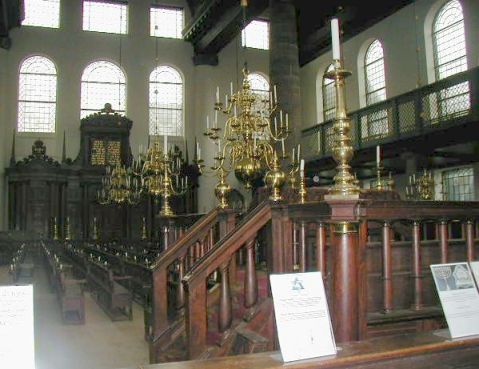The language of priests and the role of bishops in Jesus’ day
Kevin Williams responds to questions about the language used in the Second Temple and the role of the Bishop outside of the New Testament. This is part of a conversation that started with Henry Harbuck’s article, “What Bible Did Jesus Use?” and continued with “What Yeshua Quoted” by Kevin Williams. More recently, Henry Harbuck requested clarification in his letter, “Bishops, Aramaic, and the LXX.”
Brother Harbuck writes, “I must be wrong to have assumed for many years that the high priests spoke Aramaic.”
It is certainly difficult to glean what may or may not have been going on in the temple when Jesus and the disciples walked the earth. Most of what we have recorded by the Israelites came well after the temple was destroyed, and what language was used was so common and widespread they did not consider it important enough to record.
What I am about to suggest may not be a popular approach and not very academic, but let’s make an assumption based on what we actually do know. If today’s synagogue service is intended to be a mirror of the temple service, and it is, then I can tell you that the rituals are indeed conducted in Hebrew while the conversation and instruction would likely be in a local language. As a basis for my conclusion, there are two preeminent approaches to modern synagogue life: Ashkenazi and Sephardic, the first being more central and eastern European (German) based while the latter found its roots in Spain and Portugal. Both are considered authoritative in modern Judaism and while distinctly Jewish/Rabbinic they also share commonalities to the nations in which they are rooted. Their services are conducted in Hebrew though their conversations are in the commonly accepted tongue.

Interior of the Esnoga (Spanish and Portuguese synagogue) in Amsterdam. In the foreground is the bema, the reader’s platform (also known as the tebáh). In the background is the Torah ark (hekhál). Image: Joaotg by way of Wikimedia Commons.
A quick story: years ago in a Messianic Synagogue in Toledo, Ohio, we were holding regular Friday night services. The liturgy was in Hebrew based on the Ashkenazi tradition and many of the praise songs we sang were in both Hebrew and/or English. The discussions, as you might guess, were about Yeshua and were in English. On one particular evening we had a small group of visitors, Russian Jewish immigrants. They spoke no English. We spoke no Russian. It was interesting to say the least! But we could share the Hebrew liturgy, which they understood, and we discovered that we had one other shared tongue with one individual—Italian. So we went from Hebrew to English to Italian to Russian and back again. Without intending to, we upheld a long-standing synagogue tradition.
So we have established what we know about today. Looking ahead, I refer you to the Temple Institute in Jerusalem. They routinely practice and prepare for the next temple doing all that they can to reestablish the observances just as they were carried out 2,000 years ago. For them, biblical Hebrew is a sacred tongue and the role of the priesthood is to make clear distinctions between the sacred and the secular. I can guarantee you that they will not be speaking Greek. More than likely they will speak modern Hebrew rather than biblical Hebrew when not conducting liturgy.
Category: Ministry, Spring 2015


